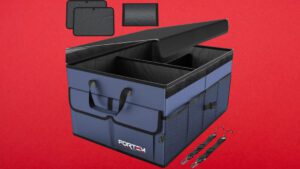Risky jobs, higher insurance premiums – Trinidad & Tobago Express Newspapers

Accidents at work are a common thing.
Whether you work with heavy machinery or enjoy the perks of having a desk job, there are probable dangers around that can cause mild to serious injuries or even death.
As with any profession, high-risk jobs are insured. But the terms and conditions of these policies are not the same.
Several prominent insurance agencies throughout T&T and the Caribbean categorise their risk levels with one being the lowest and four being the highest. Category four includes offshore employment. Category one encompasses desk jobs, news anchors, clerks (basically low risk jobs); Category twoâgeneral nurses, journalists (frequently driving to assignments), doctors, messengers and category three- doctors and nurses (working with mentally ill patients and working alongside patients susceptible to diseases) taxi drivers, police, fire, coast guard, construction workers.
In an interview with the Express Business on March 4, 2022 President of the Trinidad & Tobago Association of Insurance & Financial Advisors (TTAIFA) Gerald Cruickshank was asked to define what jobs are considered âhigh-riskâ to insurance companies in TT and the Caribbean?
He said many jobs may be deemed high risk such as: âwelding, electrical, mining, liquor, chemicals, oil and gas and marine etc . .â
âHigh risk occupations can increase life insurance rates for several different reasons; however, once a policy is issued by an insurance company the premium rate quoted is basically final,â he explained.
But, should the client change occupation to a non-hazardous job, the company will consider a reduction in premiums.
âCompanies use senior actuaries to determine the premium rates for their policies and several other factors when assessing the extent of the risk they would take to insure anyone,â Cruickshank added.
Before a company can assess any type of risk, they first ask that their sales representatives convey as much information as possible by having prospective clients complete occupational questionnaires together with the completed application.
âAnd in most cases a full medical. The more risk factors you have, the greater the risk in insuring you. This could impact which policies you qualify for and how much your rates will be. Your job might not play much of a role if youâre in a desk job, but dangerous occupations can impact your life insurance application,â Cruickshank said.
Occupation affects insurance rates
Cruickshank explained that occupation classifications are a guide for insurance companies in their handling of risks in any normal or hazardous occupation.
He said: âIt helps the companyâs underwriter assess the risk of the client based on the type of insurance they have applied for. Companies also rate clients who are smokers differently to those that are non-smokersâ.
Based on his experience in the Industry, Cruickshank said insurance companies usually offer high risk professions life insurance at rated premiums based on the type of job they do.
âFor instance, a commercial marine diver/welder would be asked to complete a diving questionnaire and welding questionnaire to determine why they dive, what equipment do they use, how long have they been diving, what type of dives have they done in past three years, as well as give an idea where they plan to dive in the next 12 months.â
Additionally, the questionnaire will seek to ascertain: âThe depth to which they dive and how much time they spend at each depth between 40 – 100 feet over that three- year period. They need to also state what is the maximum depth they have ever dived and the locations, the type of training received, do they dive alone, what precautions do they take and have they ever suffered any ill effects from diving. The insured would also need to know what type of process is employed in welding underwater and what do you weld as well as what type of precautions are taken etc.
âThese are just some of the questions that would need to be answered honestly by the client before any insurer can consider the risk,â, Cruickshank said.
Leaving a legacy
Life Insurance is about leaving a legacy for your loved ones.
Many breadwinners spend their entire lifetime creating assets so that their families can live a more comfortable lifestyle, which, according to Cruickshank can be taken away at any time through an accident or crime, sickness and untimely death.
âEveryone needs to buy life insurance because no one knows their death date. We are all here now but the main constant is that we will all die one day, so why not leave a legacy in place through life insurance so your loved ones can be better off in life. Life insurance helps protect against uncertainties, and that becomes even more important for people in high-risk jobs. If youâre in a profession like law enforcement, construction, or aviation, life insurance can give you and your family added peace of mind.â
This, Cruickshank said, will afford the insured to have the peace of mind, âknowing that whenever you die, your family is secured financially, the bank and credit union loans etc will be paid off, the kidsâ future university education is taken care of, the mortgage is paid off, business loans are paid up so the business remains in the family.â While many people worry about how their health or any medical conditions might affect the cost of their life insurance policy, your occupation can also increase the cost of your premiums in some cases.
About Gerald Cruickshank
President of the T&T Association of Insurance and Financial Advisors (TTIFA) Gerald Cruickshank began his career as an insurance advisor in 1989 at British American Insurance Company where he spent 26 years, moving from a sales representative to a unit manager and then branch manager.
Cruickshank served as director of the TTAIFAâs North Chapter and then migrated to the East Chapter serving as a director for many years until becoming president of the TTAIFAâs East Chapter from 2009 to 2011, where he moved through the ranks from Assistant Secretary/Treasurer, Secretary/Treasurer, Education Chair, Awards Chairman, Vice President then President of the National Board of TTAIFA from 2015 to 2017 to his present position.
Cruickshank is also an executive member of the Caribbean Association of Insurance & Financial Advisors (CARAIFA) and is at present the CARAIFA Regional Congress Chair for 2018. He is the Managing Director of GDC Financial Services Ltd a General Insurance Agency with Sagicor General Insurance and is also an agency manager at Pan American Life Insurance.





